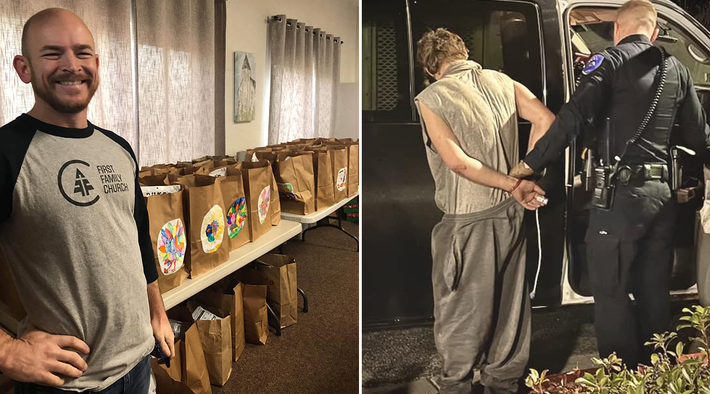Marian Wright Edelman; doing the good work for children
Seventeen-year-old Theresa Tran is one of this year’s winners of the Children’s Defense Fund-Ohio’s Beat the Odds scholarships after overcoming tough odds including physical disability, the death of a beloved sibling, and a father who suddenly abandoned the family and left her mother to raise four children alone.
Theresa says she had to be a survivor right from the start: “The odds were against me from the moment I was born. The chances of my survival were very slim since I was born three months premature and weighed only 1 lb and 10 oz. The doctors just looked at my mom and said, ‘She won’t make it until tomorrow.’ My dad refused to come see me and instead argued with my mom, saying that there wasn’t a point to my living because I was already messed up. My mom didn’t give up on me, though, and I began to fight for my life, unaware that this was the first of many times where I’d be a fighter.”
Soon after birth Theresa was diagnosed with spastic diplegia, a form of cerebral palsy. Her closest brother Daniel, only eight months older because Theresa had been born so prematurely, and their older brother David helped protect Theresa from other children’s teasing and stares. Five days before her fourth birthday, Theresa underwent corrective surgery to allow her to walk more easily—a date that should have been a happy milestone. But as family and friends were picking up balloons and flowers later that day to celebrate they were in a car accident, and five-year-old Daniel was killed.
Theresa says, “After Daniel passed away, I wasn’t the same because he was my best friend, confidant, and protector. During elementary school, I was mourning, but that didn’t stop kids from viciously teasing me and humiliating me constantly because of my limp and an unusual gait. I didn’t want to go to school because I was defenseless, so going to school was a daily nightmare. Yet, because of the constant torment, I became emotionally strong. I figured if I were strong, if my tormentors couldn’t see me cry, then I’d be okay.”
By middle school Theresa had finally started to believe the worst of the hard times were behind her when her world fell apart again. Her father left one day without mentioning where he was headed and never returned. After filing a missing person report her frantic mother eventually learned he had paid a coworker to drive him to the airport and boarded a flight to his native Vietnam, leaving his family behind with no warning and no way to contact him.
As her mother continued working several jobs to keep the family afloat Theresa quickly took on much of the responsibility for caring for herself and her two younger siblings and she began to look at school in a new way—as a refuge. “School is the place I can get away from all the stress and troubles going on around me. I have no control over many things in my life, but my academics are up to me.” Theresa loved the feeling of being able to see all the hard work she put into a project or test immediately pay off, and good grades were an even greater incentive for her to “focus on what you’re good at and what you can do and not what you can’t.”
Theresa is now a high school senior and president of her class with a grade point average above 4.0. She hopes to major in biochemistry premed and become an orthopedic surgeon—“I’ve always felt the compelling obligation to help others and that I must give back to all the doctors who’ve helped me.” She also says, “I hope [my story] can help others going through adversity and show those people that they’re not alone . . . Despite these challenges, I’ve gotten back up and faced each day with an optimistic attitude. My past does not define me or my future, but all of these hardships have molded me into the person I am today.”
Theresa says: “I feel like a lot of people when they encounter adversity—a lot will just say, ‘Oh, well, I guess I can’t do that. I’m going to sit here and not do anything,’ or ‘I’m going to throw myself a pity party.’ But beat the odds, I feel like it’s an opening and it shows you that whatever you face in life, that there is a way out and that you can change what you’re given. You don’t have to accept what happens to you. You’re fully capable of doing whatever it takes to change whatever has happened to you, to change your future—maybe not your past, but your future.”
Theresa and her fifteen fellow Beat the Odds scholarship winners the Children’s Defense Fund is honoring in Ohio, Minnesota, and New York in March are a genuine inspiration for other young people and all of us who face steep odds. How many children are we losing who lack Theresa’s resilience and grit? How do we instill and nurture the same sense of hope and perseverance in their ability to struggle to make the future different despite the odds stacked against millions of them by poverty, disabilities, and inadequate school and community support? And how do we all struggle together to change unjust policies and practices, structural poverty, racial disparities, violence, and disabilities children can’t control while we lend a helping hand and encouragement to help as many individual children as possible? Every child deserves a level playing field on which to grow and contribute. That is America’s dream.
Marian Wright Edelman is President of the Children’s Defense Fund whose Leave No Child Behind mission is to ensure every child a Healthy Start, a Head Start, a Fair Start, a Safe Start and a Moral Start in life and successful passage to adulthood with the help of caring families and communities. For more information go to www.childrensdefense.org











